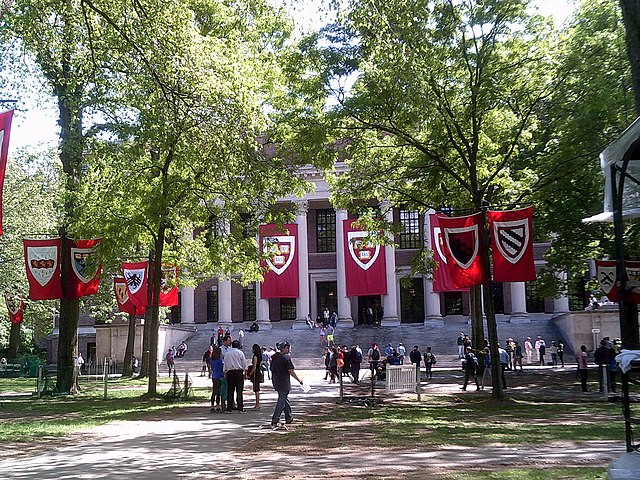Harvard University is facing mounting pressure from the Trump administration, which has frozen over $2 billion in federal grants and contracts, threatened to revoke the institution's ability to enroll foreign students, and warned of possible action to remove its tax-exempt status. The unprecedented standoff stems from Harvard's refusal to comply with a set of federal directives aimed at combating campus antisemitism.
Department of Homeland Security Secretary Kristi Noem issued a letter to Harvard this week demanding records related to international students' alleged "illegal and violent activities," warning that the university would lose its Student and Exchange Visitor Program certification if it failed to comply by April 30. International students currently make up more than 27% of Harvard's enrollment.
Simultaneously, the Internal Revenue Service is reportedly evaluating the potential revocation of Harvard's tax-exempt status, a move that could cost the university tens of millions annually. Sources familiar with the matter told CNN that a final decision is expected soon. "It's unclear how we'd be taxed," said Gregory Mankiw, a professor of economics at Harvard. "We don't have shareholders or pay dividends."
The funding freeze, which impacts nearly $9 billion in federal money tied to Harvard's operations, has already disrupted research at the School of Public Health. "We are asking for your help in assessing how best to preserve vital work and support our researchers," Vice Provost for Research John Shaw wrote in an internal email obtained by CNN.
The administration's list of demands has included reforms to hiring, admissions, and academic content to root out alleged antisemitism. Harvard President Alan Garber responded on Monday, stating: "The university will not surrender its independence or relinquish its constitutional rights."
Trump intensified his rhetoric on Wednesday, posting on Truth Social: "Harvard is a JOKE, teaches Hate and Stupidity, and should no longer receive Federal Funds." He further wrote, "Harvard can no longer be considered even a decent place of learning, and should not be considered on any list of the World's Great Universities or Colleges."
The conflict has already triggered legal action. Harvard's chapter of the American Association of University Professors filed a preemptive lawsuit last week challenging the administration's actions. The lawsuit argues that the funding freeze violates Title VI of the Civil Rights Act, which governs how federal funds are administered.
Legal experts warn that the case could entangle the university and the federal government in prolonged litigation. "There isn't a playbook on how to manage this," said Peter Lake, a professor at Stetson University and director of the Center for Excellence in Higher Education Law and Policy. "If they wanted to, they could literally walk to court every week and say, 'Well, look what Harvard didn't do today.'"
While Harvard has resisted some of the administration's demands, it has taken steps to address concerns. The university dismissed the heads of its Center for Middle Eastern Studies after criticism over perceived bias. However, it has drawn a firm line against broader compliance with what Garber called "an effort to regulate the university's intellectual conditions."
In anticipation of a protracted legal and political battle, Harvard has retained prominent legal counsel with Republican credentials, including Robert Hur and William Burck, signaling its readiness to fight the administration in court if necessary.






